Are you ready to take charge of your career and discuss your salary with your employer? Negotiating your salary can feel daunting, but it's a vital step in ensuring your compensation reflects your skills and contributions. By approaching the conversation with clarity and confidence, you can set the stage for a positive outcome. Let's dive into the essential components of a salary negotiation letter that will help you articulate your value and secure the pay you deserve!

Clear Subject Line
Request for Salary Review at [Your Position] - [Your Name]
Proper Salutation
In a corporate environment, salary negotiation is a crucial aspect of employment dynamics that can significantly influence an individual's financial stability and professional growth. Employees often initiate this negotiation process after reviewing market standards, such as average salaries for specific job roles within similar companies in the same industry. Proper etiquette during negotiations typically includes a respectful salutation, which sets the tone for the conversation, showing appreciation for the employer's time and position. Phrases such as "Dear [Employer's Name]," or "Hello [Manager's Name]," are customary choices, ensuring professionalism while addressing the individual directly. This initial greeting can foster a positive atmosphere, encouraging open dialogue and potentially leading to a more favorable outcome in salary discussions.
Opening Paragraph (Gratitude and Position Context)
Gratitude and acknowledgment of the current role is essential in salary negotiation discussions. Express appreciation for the opportunities offered within the organization, emphasizing the responsibilities held as a [specific job title, e.g., Marketing Manager] over the past [specific duration, e.g., three years]. Highlight contributions to successful projects, such as increasing quarterly sales by [specific percentage] or launching a major marketing campaign that garnered [specific award or recognition, e.g., industry award]. This establishes a base of mutual respect and opens dialogue for discussing compensation adjustments that reflect performance and market standards for similar positions in the [specific industry, e.g., retail sector].
Justification for Salary Increase (Performance and Market Data)
Effective salary negotiation requires a well-researched justification that emphasizes both performance contributions and market standards. Recent studies indicate that, on average, professionals in similar roles, such as marketing managers, earn around $85,000 annually in metropolitan areas like San Francisco and New York City, reflecting a demand for skilled talent in competitive markets. Over the past year, I successfully led projects that increased our team's revenue by 15%, demonstrating my commitment to organizational goals and exceeding performance expectations. Additionally, my recent certifications in digital marketing tools, such as Google Analytics and HubSpot, provide me with an advanced understanding of market trends and analytics, adding further value to my role. Considering my contributions, industry benchmarks, and the ongoing inflationary pressures impacting cost of living, a salary adjustment to align with market standards would not only reaffirm the company's investment in talent but also motivate me to continue delivering exceptional results.
Closing Statement (Politeness and Next Steps)
In a salary negotiation, expressing gratitude towards the employer is crucial. A closing statement should reflect appreciation for the consideration of your request, while also suggesting a follow-up action. For instance, mention the hopes for a positive resolution and readiness for further discussion. Indicate an interest in exploring how to align your compensation with industry standards and personal contributions to the company. Maintaining a respectful tone encourages open communication and facilitates a productive dialogue moving forward.
Letter Template For Salary Negotiation With Employer Samples
Letter template of salary negotiation due to increased responsibilities.
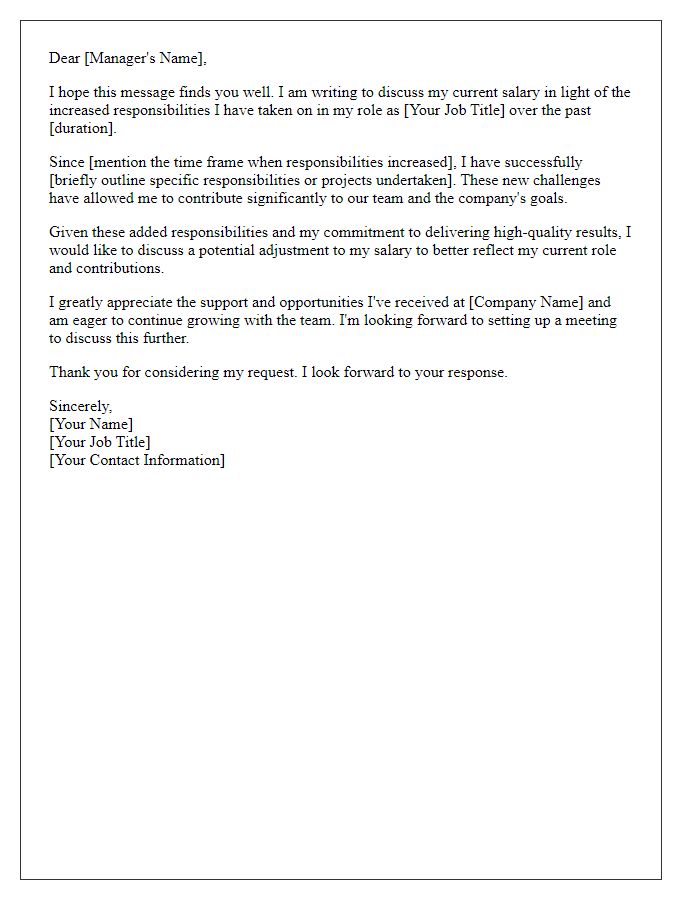
Letter template of salary negotiation after completing a successful project.
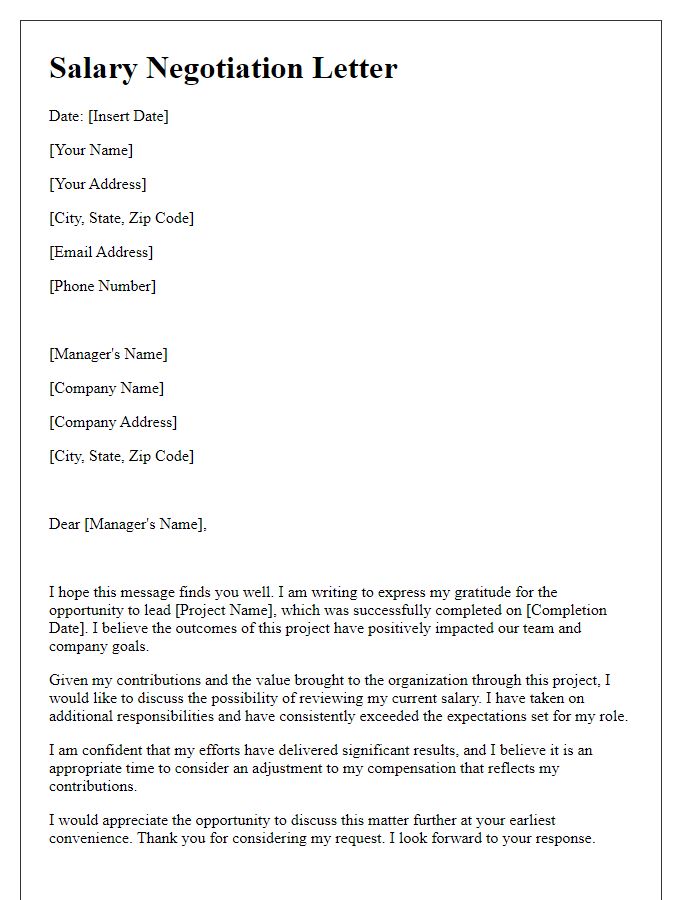
Letter template of salary negotiation to discuss benefits and compensation.
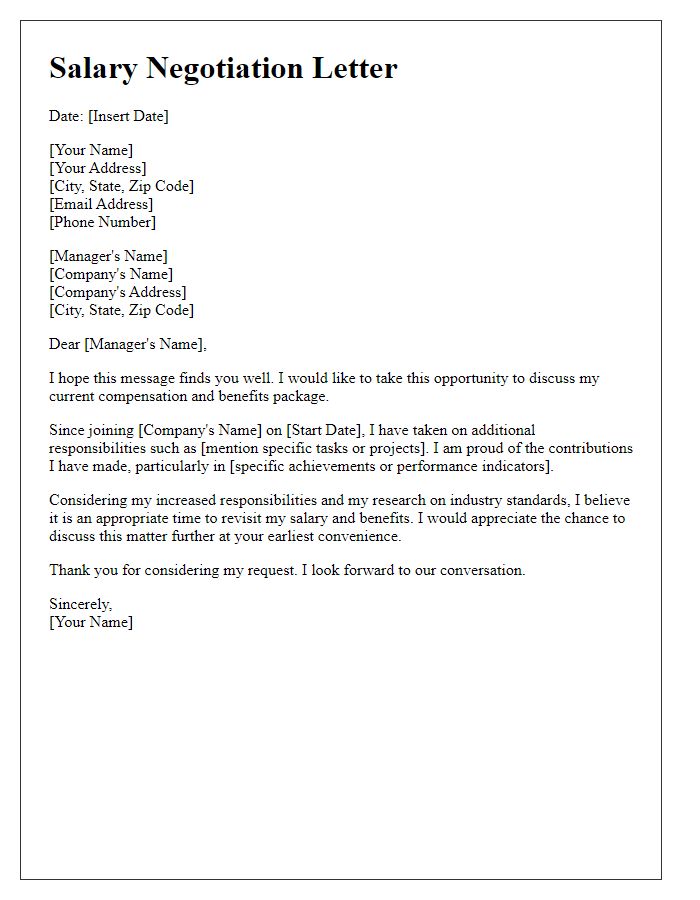

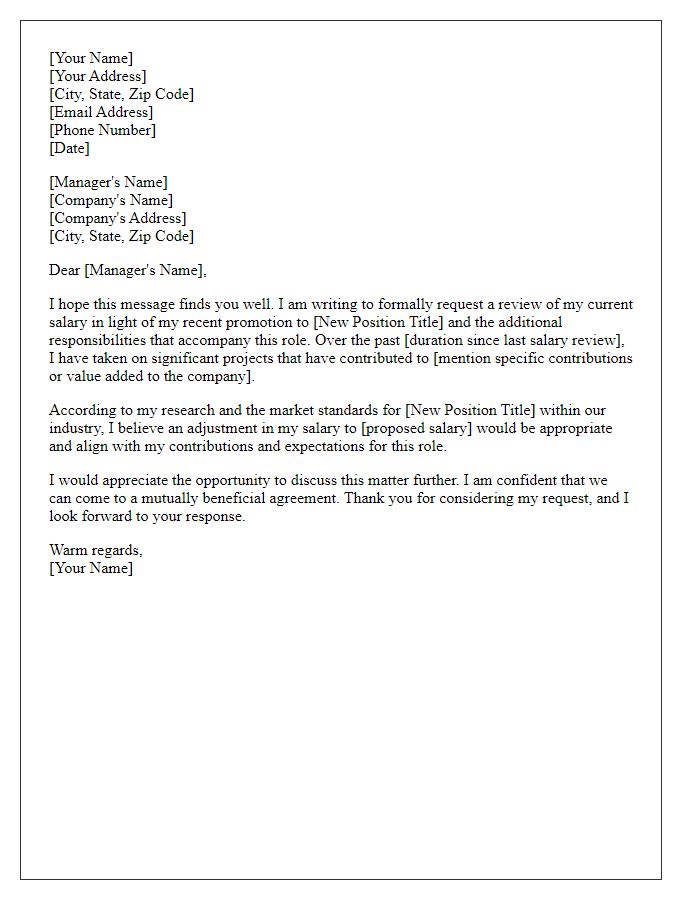
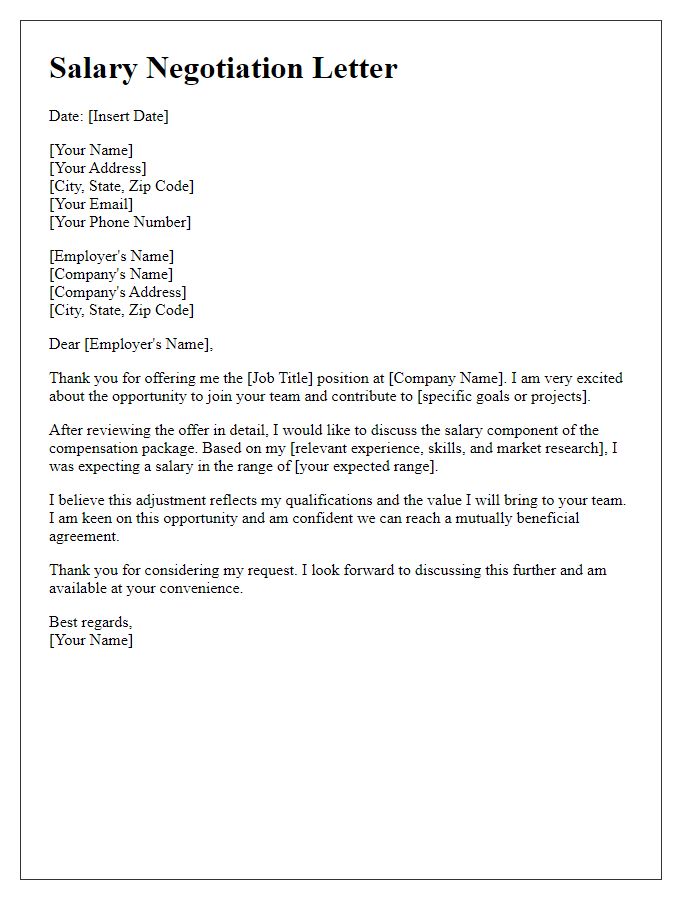
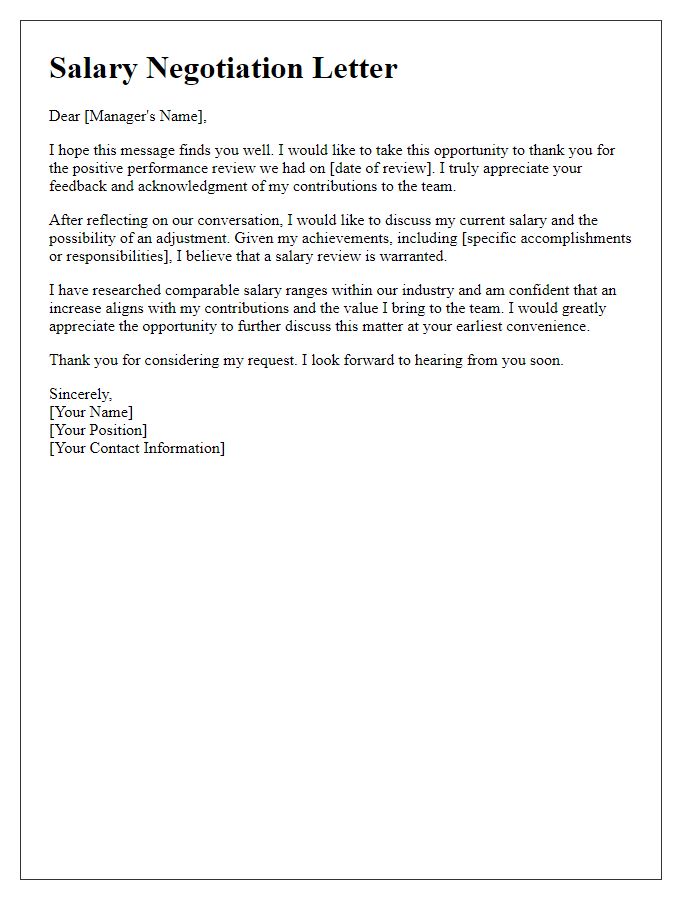
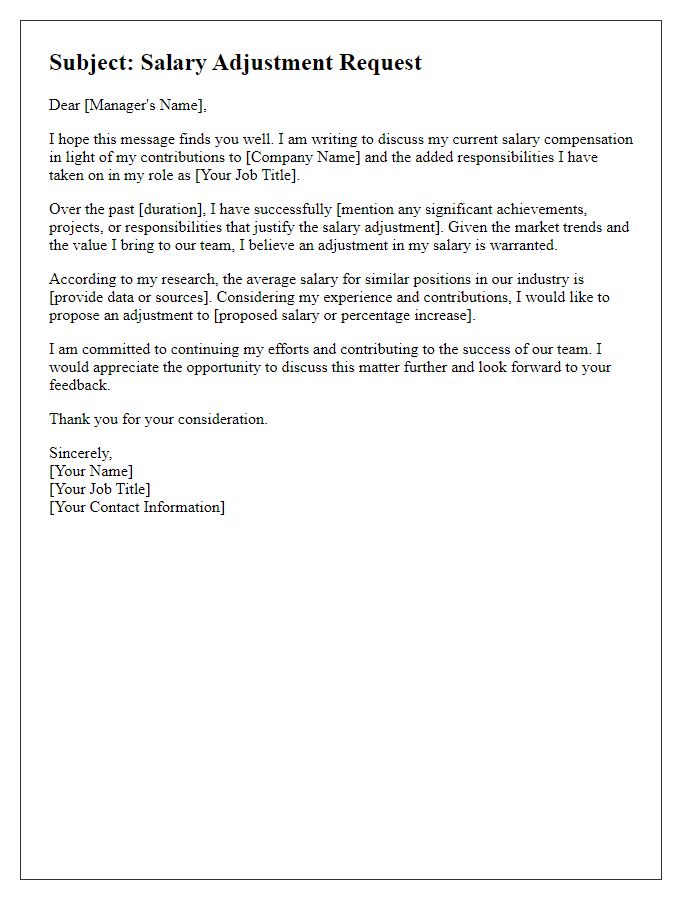
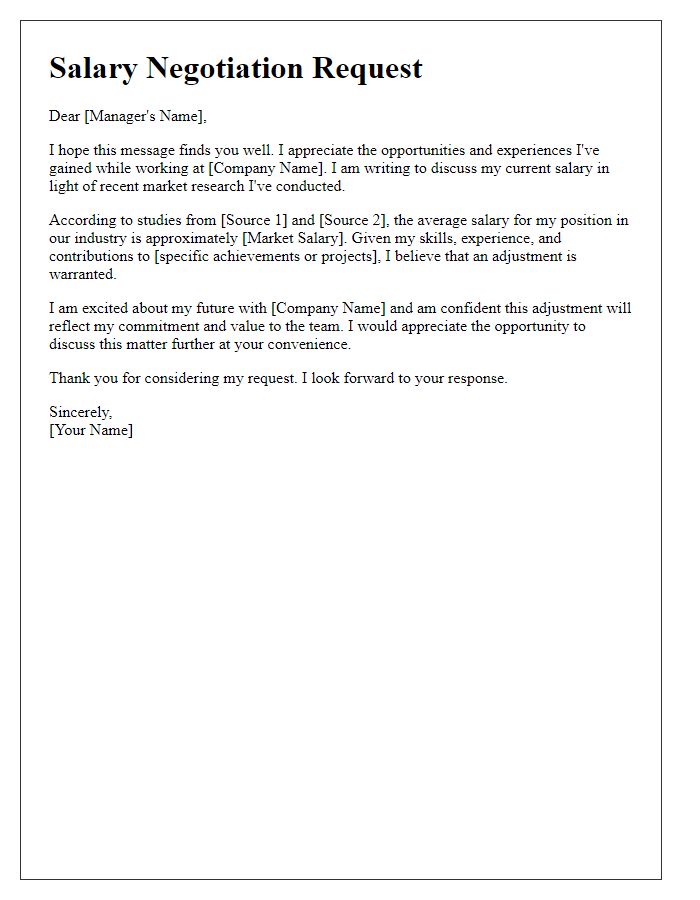
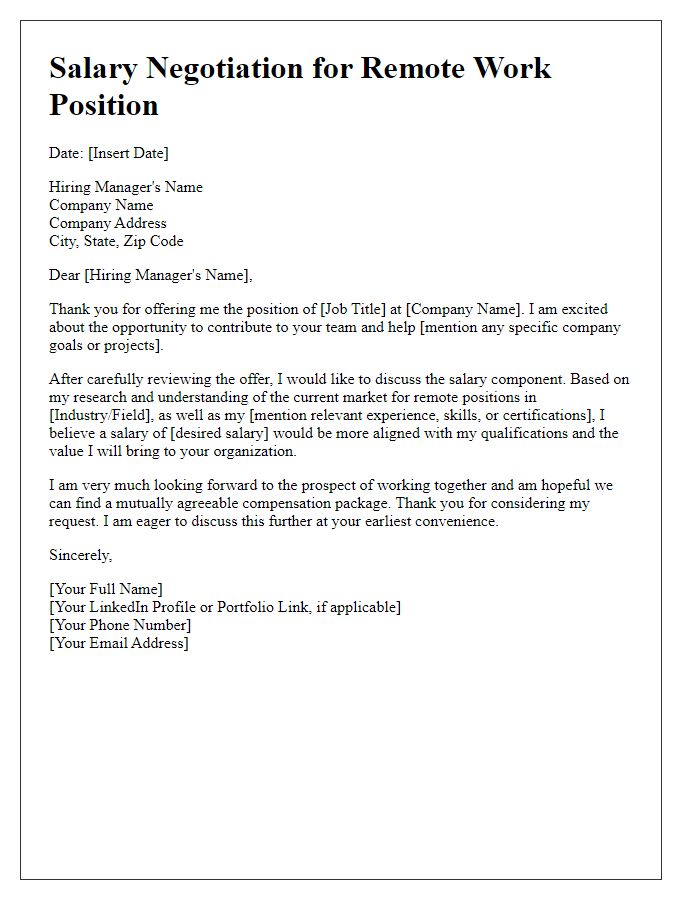
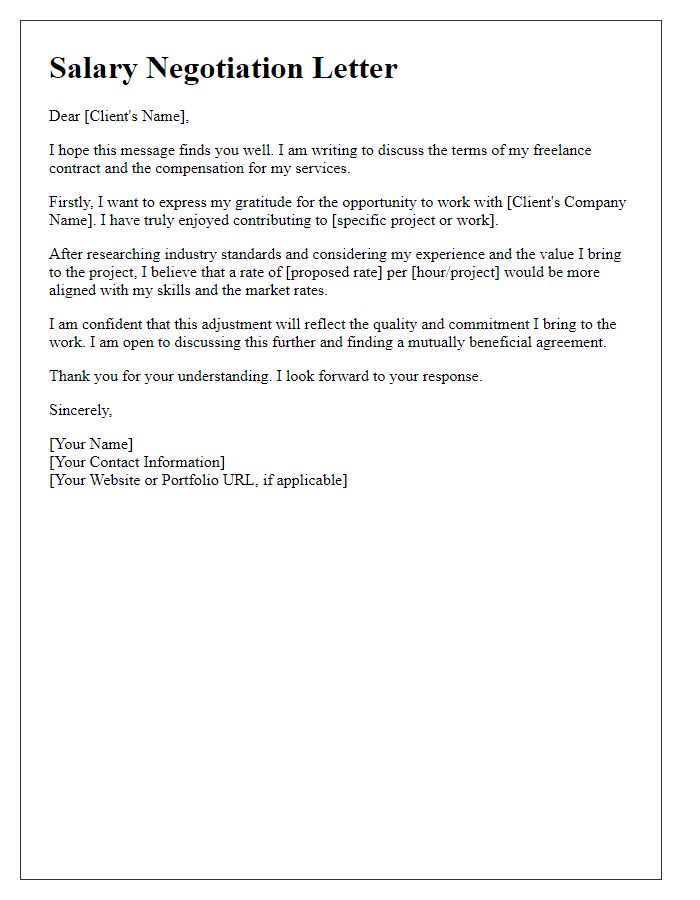


Comments